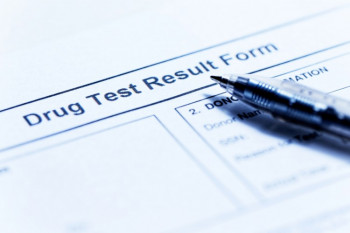Can You Take Ubrelvy And Qulipta Together?
In our latest question and answer, the pharmacist discusses a reader's question regarding the combined use of Qulipta and Ubrelvy.

Question
Is it safe to take both Ubrelvy and Qulipta at the same time for migraines? Plus, is it safe to consume alcohol while taking these medicines?

Answered by Dr. Brian Staiger, PharmD
Medical Content Reviewed By HelloPharmacist
Staff
Last updated Jun 27, 2025
Key points
- The use of two different CGRP drugs at the same time, such as Qulipta and Ubrelvy, is not well studied for long-term safety and efficacy.
Answer
Thanks for reaching out to us!
This is a great question, and unfortunately, one that doesn't have a clear answer.
Two Different Types of 'CGRP' Drugs
The 'CGRP' class of drugs targets calcitonin gene-related peptide, a molecule found in nerve cells in the head that is believed to play a key role in causing migraines. It's involved in transmitting pain signals in both the peripheral (outside the brain and spinal cord) and central nervous systems. Studies show that when CGRP levels rise, it can trigger a migraine attack. People with migraines tend to have higher levels of CGRP, especially during a migraine attack.
There are two types of CGRP antagonist drugs designed to lower CGRP activity:
- Large molecules (monoclonal antibodies), often termed 'mAbs', which include Aimovig (erenumab), Ajovy (fremanezumab), and Emgality (galcanezumab).
- Small molecules, often termed 'gepants', which include Nurtec (rimegepant), Qulipta (atogepant), and Ubrelvy (ubrogepant).
As a general rule, the small molecules, known as gepants, are primarily used for acute migraine treatment, while the large molecules, or 'mAbs', are for prevention.
However, Nurtec (rimegepant) and Qulipta (atogepant) are two 'gepants' that can be used for the prevention of migraines too.
Using Two Different CGRP Drugs at the Same Time?
The jury is still out on the safety and efficacy of using two different CGRP drugs at the same time.
There are some small studies published that do show some positive effects with the combined use of a large molecule 'mAbs' drug, like Aimovig, for preventative treatment with a small molecule 'gepant' drug for acute use.
One such small study concluded the following:
Rimegepant, when used as an oral acute treatment in patients receiving CGRP mAbs as preventive treatment, was well tolerated; no safety issues were identified. Studies involving larger patient populations are needed to confirm these findings.
A larger, retrospective study found similar results:
The findings of this study demonstrate that combining CGRP mAbs with gepants is a safe and well-tolerated treatment approach for migraine. Future studies are warranted to further validate these findings and explore long-term outcomes.
It certainly is worth noting that there are concerns. One opinion piece, published in 'Expert Opinion on Drug Safety', stated the following:
CGRP is a potent vasodilator and participates in the regulation of blood pressure and the maintenance of cardiovascular homeostasis. Thus, there is a theoretical risk that combining CGRP inhibitors could lead to clinically relevant hypertension or ischemic events
In your question, you specifically asked about taking Qulipta with Ubrelvy.
Even though Qulipta is for preventative treatment and Ubrelvy is for acute treatment, they are both 'gepant' CGRP antagonist drugs. I could not find any studies evaluating the combined use of these drugs (i.e., taking two 'gepant' drugs). This situation is certainly less studied than the combined use of 'mAbs' drugs and 'gepant' drugs.
Until more research is done, we just don't know the safety and efficacy of taking Qulipta and Ubrelvy together (two 'gepant' drugs).
It's possible an individual may experience some additional relief taking Ubrelvy for breakthrough migraines while also taking Qulipta, but whether or not there is a positive risk to benefit ratio here, we don't know.
I'd personally recommend against the combination until more data is available. You certainly want to talk to your doctor about what your options are to treat your migraines, especially if you are having trouble controlling them.
CGRP Antagonists and Alcohol
There is no specific warning regarding the consumption of alcohol with CGRP antagonist drugs. While it doesn't appear that alcohol affects the drugs in regard to how they work, it's important to consider the potential interactions.
Alcohol consumption, especially over-consumption, is well known to cause headaches and could increase the risk of them occurring. It could also make them more severe.
Additionally, alcohol is a vasodilator, meaning it widens blood vessels, which could potentially interact with the vasodilatory effects of CGRP antagonists. This interaction could theoretically lead to changes in blood pressure or cardiovascular function, although there is limited research on this specific interaction.
Given these potential risks, it's advisable to use alcohol in moderation while taking CGRP antagonist drugs. It's always best to consult with your healthcare provider for personalized advice based on your medical history and current medications.
Final Words
Thanks again for reaching out to us! I hope you found this answer helpful.
References
- Tolerability of calcitonin gene-related peptide monoclonal antibodies and other monoclonal antibodies in adults with concurrent migraine and other medical conditions, Sage Journals
- Calcitonin Gene-Related Peptide (CGRP)-Targeted Monoclonal Antibodies and Antagonists in Migraine: Current Evidence and Rationale, PubMed
- Calcitonin gene relating peptide inhibitors in combination for migraine treatment: A mini-review, PubMed
- Safety and Tolerability of Combining CGRP Monoclonal Antibodies with Gepants in Patients with Migraine: A Retrospective Study, PubMed
- Combining two CGRP inhibitors to treat migraine, PubMed
- Efficacy and Safety of Anti-calcitonin Gene-Related Peptide (CGRP) Monoclonal Antibodies in Preventing Migraines: A Systematic Review, PubMed
-
 Dr. Brian Staiger, PharmD
Dr. Brian Staiger, PharmD
- 2421 views


